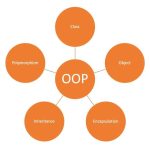The landscape of online payment systems in Nigeria has undergone a rapid transformation in recent years. As the digital economic system continues to thrive, the desire for secure and accessible modes of payment has increased.
Nigeria has a good number of young and tech-savvy population, and the adoption of online payment is growing massively. This article explores the evolution and trends of online payment systems in Nigeria and also highlights the impacts of online payment systems.
Table of Contents
The Early Days of Online Payments in Nigeria
Online payments in Nigeria has had humble beginnings, with the adoption of e-commerce and digital payment strategies. In the early 2000s, traditional cash transactions were the norm, and many Nigerians were skeptical about the use of their credit or debit playing cards for online purchases. Concerns over protection, fraud, and a loss of trust in online structures posed considerable demanding situations.
Also, in the early days of online payments, Nigerians had been limited to using credit and debit cards issued via traditional banks. Furthermore, for Nigerians to make major transactions, it required physical presence at the banks. This resulted in long queues, less customer satisfaction, delays in transactions, and more work for traditional banks.
However, as digital systems advanced, financial establishments recognized the capacity of digital payments, and the systems became accepted.
Mobile Money Development in Nigeria
In 2009, the Central Bank of Nigeria (CBN) released the Nigeria Inter-Bank Settlement System (NIBSS), which enabled immediate digital transfers between financial institution debts. This became a first-rate forward movement for online payments in Nigeria, and it paved the way for the upward push of mobile cash and different revolutionary changes.
Nigeria’s evolution in online payments resulted in the introduction of mobile money. Mobile community operators, in collaboration with monetary establishments, launched digital banking and payment platforms, making it easier for Nigerians to get access to economic services through their mobile telephones. This resulted in economic inclusion for millions of Nigerians.
During this period, the rise of online payment platforms in Nigeria, like InterSwitch, Quickteller, and Remita, grew.
Online Payment Platforms in Nigeria
The rise and evolution of payment systems have resulted in the development of some online payment platforms, and the most amazing fact is that some of these platforms are built by Nigerians. Online payment platforms in Nigeria include;
-
Flutterwave
Flutterwave is an online payment platform founded by CEO Olugbenga Agboola, Iyinwoluwa Aboyeji and Adeleke Adekoya. In 2021, the company raised 170 million US dollars for its Series C funding round. So far, the company has processed over 400 million transactions worth over $25 billion to date across 34 countries in Africa.
This platform allows for online payments locally and globally, makes payments online safe, secure, and with ease. Flutterwave is currently in 11 countries and supports 20 currencies. It allows payments through bank transfers, bank accounts, mobile money, PoS, Visa QR, and cards.
-
Paystack
Paystack, an online payment platform present in Nigeria, was founded by Ezra Olubi and Shola Akinlade in 2015. Shola Akinlade discovered he could charge his card from a software he built. That discovery led to Paystack.
In 2020, Stripe, an Irish payment company, acquired Paystack for $200million. Today, Paystack is one of the leading payment platforms in Nigeria.
-
Remita
Remita is a comprehensive payment solution managed by John Obaro. John Obaro started the company SystemSpecs in 1991 after having a fulfilling career in the banking industry. Remita was launched by SystemSpecs and fully developed in Lagos, Nigeria. It is a payment platform used by businesses to receive payments with ease.
Since its launch, Remita has served as a platform for online payments for universities, schools, and businesses. Remita is also used for payments for decoder subscriptions like DSTV and StarTimes.
-
PayPal
The revolution of Nigeria’s digital and financial state led to the presence of Paypal in the nation. PayPal is an American online payment platform founded by Max, Peter, and Luke in 1998. PayPal provides a digital wallet for customers and businesses to receive, send, and withdraw funds.
Paypal is currently in 200 countries with about 23 currencies. In July 2014, PayPal was opened to Nigeria for Nigerians to access. It operates in Nigeria with the United States Dollar (USD) as the currency of exchange. Furthermore, a partnership was set up between PayPal and Flutterwave to enhance payments in Nigeria.
-
Quickteller
Interswitch, a transaction company founded by Mitchell Elegbe, launched Quickteller. Quickteller is an online payment platform in Nigeria designed by Wale Otolorin of Interswitch and is designed to work with credit and debit cards for virtual payments with ease.
Quickteller partnered with banks to make payments accessible to customers. It is available as a mobile application for customers to transfer funds, airtime, and bill payments and also to book travel tickets.
There are other payment platforms in Nigeria, like Monify, etc, which have contributed greatly to the use and access of payments in Nigeria.
Online Payment Trends in Nigeria
In 2023, close to 17 percent of the population between ages 16 and 64 were using mobile payment services. This was an increase from 2022. Between 2019 and 2022, the share of the population reporting the use of mobile money accounts in Nigeria remained stable.
In 2016, Nigerians completed 154.5 million digital payments, representing an annual average of 12.9 million transactions per month. By the end of 2022, average monthly transfers stacked up to 427.8 million as payments volume topped 5.1 billion.
The average number of times Nigerians did a digital transfer each month so far in 2023 is 818.4 million times. Based on the statistics provided, these are some of the factors that influenced the rise of online payment systems in Nigeria.
-
Mobile money
Mobile money is the quickest-growing money approach in Nigeria—as it stores funds in an electronic wallet or account.
Popular mobile money platforms like PagaMoney, MTN Mobile Money (Momo), Airtel Money, and Glo Mobile Money received extensive attractiveness, allowing customers to carry out various transactions, consisting of money transfers, bill payments, and airtime to foreign countries without delay, from their mobile phones.
In recent years, there has been a surge in the reputation of mobile money in Nigeria. Mobile cash systems allow users to shop and transfer money using mobile phones without the need for a financial institution account.
This has made online payments extra accessible to thousands and thousands of Nigerians, and it has additionally helped to boost economic inclusion.
-
Fintech startups
Another important trend in the evolution of online payments in Nigeria is the rise of fintech startups. The emergence of fintech startups played an essential function in reshaping Nigeria’s payment landscape. One of the most awesome traits is the advent of virtual wallets, allowing users to shop for funds and make transactions seamlessly.
Fintech businesses also pioneered using QR codes for payments, making it simpler for traders and people to initiate and receive bills. This approach revolutionized the manner Nigerians performed enterprise, from small avenue vendors to installed retailers.
The Fintech industry is growing daily to suit the needs of Nigerians. For instance, some fintech startups are offering buy now, pay later (BNPL) alternatives, which permit clients to buy items and offerings online and pay for them in installments. Fintech startups are playing a primary role in riding innovation in the online payments space as they have raised over $1 billion in funding in recent years, and they’re growing modern payment solutions that are tailored to the needs of Nigerian consumers.
-
QR code payments
QR code payments have become increasingly popular in Nigeria. QR code payments are easy and convenient, and they can be used to make payments to both online and offline merchants. Popular browsers like Google Chrome support scanning with QR codes. QR code payments make payments fast and within few minutes.
-
E-commerce
E-commerce is the buying and selling of goods and services over the Internet. It is the mode of commercial trading. The boom of e-commerce businesses is driving the adoption of online payments in Nigeria. In 2022, the value of e-commerce transactions in Nigeria surpassed three trillion naira.
-
Cryptocurrency and blockchain technology
In recent years, cryptocurrencies and blockchain generation have made their presence felt in Nigeria’s charge environment. Many Nigerians now use cryptocurrencies as an opportunity for payment and investment, taking advantage of the decentralized nature of the blockchain era.
Nigeria is said to be among the top countries in cryptocurrency trading. The use of currencies like Bitcoin (BTC), Ethereum (ETH), Coinbase, Dogecoin, Ripple, and USD contributed to the increase in online payment platforms in Nigeria.
The Role of Regulatory Reforms
To encourage the growth of online payments and make certain agreements, Nigerian regulatory bodies, the Nigeria Inter-Bank Settlement System (NIBSS), which includes the Central Bank of Nigeria (CBN), brought several guidelines. These measures helped to standardize the enterprise and guard customers’ monetary pursuits.
The “Cashless Policy” initiative, for instance, introduced in 2012, was aimed to lessen the use of cash and sell electronic payment strategies. The implementation of Know Your Customer (KYC) and Anti-Money Laundering (AML) rules helped in combating fraud and improving the safety of online transactions. These reforms contributed to the surge of mobile money and online payment platforms.
Join our Whatsapp Community to connect and network with different professionals in different fields.
The Impact of Online Payment Platforms
The evolution of online payment systems in Nigeria has had several effects on the financial system which includes;
-
Rapid economic growth
The rise of online payment systems resulted in massive economic growth for Nigeria. The use of electronic payment systems boosted Nigeria’s GDP by 0.67% with $3.2 billion of economic input. It is projected that by 2027, the volume of online payments in Africa will be $8.9 billion.
The funding companies like Flutterwave and Paystack received millions of dollars for a series of funding. These funds have increased the economy’s growth. Furthermore, building indigenous payment platforms increased international payments for Nigeria, thereby causing money inflow from all over the world.
-
Improved reputation of the nation
Nigeria’s reputation internationally received a boost from the payment platforms in use. Nigeria has partnered with international countries to support payments in other currencies. The Irish Company Stripe partnered with the Nigerian founders to acquire Paystack. This garnered a lot of news around the countries, thereby increasing Nigeria’s reputation.
-
Easy purchases
Online payments have made it easier and more convenient for corporations, businesses, and clients to make purchases. Online payments have also helped to lessen transaction prices and improve monetary inclusion. Receiving payments and sending and withdrawing funds have been made easy. These online systems have reduced stress in transferring funds locally and internationally.
-
Employment
Online payment platforms like Flutterwave created online payment jobs for Nigerians. Online payments platforms is a great opportunity to create employment for Nigerians. Nigerians who work with foreign countries can get paid while in Nigeria. Using platforms like Paystack encouraged remote work, thereby causing employment. Online payment jobs are made available through these companies, and this reduces unemployment.
Challenges and Opportunities of Online Payments
Despite the exceptional development in online payment structures, Nigeria nevertheless faces demanding situations in achieving vast economic inclusion. Many people, especially in rural regions, lack access to infrastructure to experience and enjoy online payment systems.
Also, Cybersecurity threats and fraud remain a challenge, which constantly requires efforts to implement security measures.
However, the future of online payments in Nigeria is promising. As technology continues to develop and more people gain access to smartphones and the Internet, the opportunities for a boom in digital payment systems are great. Partnerships among fintech firms, conventional banks, and regulatory bodies are crucial to increasing innovation and ensuring a stable and inclusive financial atmosphere.
Conclusion
The evolution of online payment systems in Nigeria reflects endless possibilities and improvements. From traditional banking systems to the rise of mobile money, fintech startups, and the inclusion of cryptocurrencies, Nigeria’s online payment systems show adaptability and resilience.
As Nigeria progresses, it is crucial to address the challenges, leveraging technological advancements to build a digital structure that is accessible to everyone.
We hope this was helpful to you! Hurry and subscribe to our newsletter to receive notifications of our latest business posts which will surely give you value.
Edited by Oluwanifemi Akintomide.
About Author
-
Hi. I'm Temitope Victoria, a technical writer with a strong foundation in computer science.
I'm passionate about writing engaging articles that enlightens readers on latest technologies.
My interests span across women, technology and lifestyle and entrepreneurship.
Latest entries
 TechnologyDecember 13, 2023A Beginner’s Guide to Object-Oriented Programming
TechnologyDecember 13, 2023A Beginner’s Guide to Object-Oriented Programming TechnologyNovember 22, 2023Who is a Network Engineer, and How Do You Become One?
TechnologyNovember 22, 2023Who is a Network Engineer, and How Do You Become One? Business InsightsNovember 7, 202310 Top and Emerging Delivery Companies in Nigeria
Business InsightsNovember 7, 202310 Top and Emerging Delivery Companies in Nigeria


2 comments
A very detailed article here.
Now, I know the opportunities and challenges of payment solutions in Nigeria.
Please write about how Nigerians and those in America, UK & Europe can pay for services and goods vice versa, as I am not sure the solutions you mentioned here can do that.
Thank you Toyese. I’m glad you find it useful. You can find some of the payment platforms here.